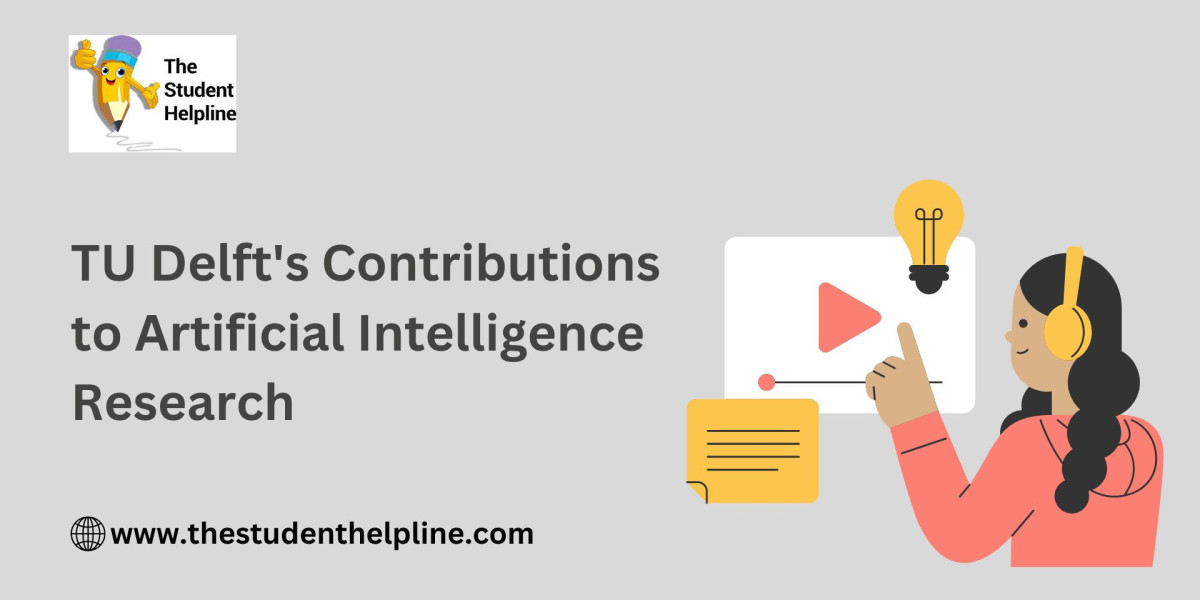Delft University of Technology (TU Delft) has established itself as a global leader in artificial intelligence (AI) research, leveraging its multidisciplinary expertise to address complex challenges and create innovative solutions. TU Delft’s work in AI spans diverse fields, including healthcare, transportation, energy systems, robotics, and more. By integrating AI with advanced engineering and cutting-edge technology, the university plays a vital role in shaping the future of intelligent systems.
This article explores the significant contributions of Delft University of Technology to artificial intelligence research, highlighting its innovative projects, interdisciplinary approach, and global impact.
A Strategic Focus on Artificial Intelligence
Recognizing the transformative potential of AI, TU Delft has strategically invested in developing AI as a core area of research. The university’s AI initiatives focus on advancing algorithms, improving data-driven decision-making, and ensuring ethical and responsible AI development. TU Delft’s approach to AI emphasizes three key pillars: innovation, collaboration, and impact.
1. Research Excellence
TU Delft is at the forefront of AI research, with its teams working on developing cutting-edge machine learning algorithms, computer vision systems, natural language processing, and autonomous systems. These advancements contribute to solving global challenges in sectors such as healthcare, climate change, and transportation.
2. Multidisciplinary Collaboration
TU Delft’s AI research is deeply interdisciplinary, involving collaboration between computer scientists, engineers, mathematicians, ethicists, and social scientists. This holistic approach ensures that AI technologies are not only innovative but also practical and socially responsible.
3. Societal Impact
The university focuses on creating AI solutions that positively impact society. Whether it’s improving public health, enhancing urban mobility, or reducing energy consumption, TU Delft ensures that its AI research addresses real-world problems.
Breakthrough Research Projects at TU Delft
Delft University of Technology has undertaken numerous groundbreaking AI projects that have gained international recognition. Below are some of the most impactful research areas and projects.
1. AI in Healthcare
AI is revolutionizing healthcare, and TU Delft is contributing significantly to this transformation.
- Medical Imaging: TU Delft researchers are developing AI algorithms for analyzing medical images, such as MRIs and X-rays, to detect diseases like cancer at earlier stages with greater accuracy.
- Personalized Medicine: The university is leveraging AI to create personalized treatment plans based on patient data, improving outcomes and reducing healthcare costs.
- Robotic Surgery: TU Delft is also at the forefront of developing AI-powered surgical robots that assist surgeons in performing precise and minimally invasive procedures.
2. Autonomous Systems and Robotics
Autonomous systems are a key area of focus at TU Delft, where researchers are advancing the capabilities of self-driving vehicles, drones, and robotic systems.
- Self-Driving Cars: TU Delft is working on AI algorithms that enhance the safety and efficiency of autonomous vehicles. The university’s research in sensor fusion, real-time decision-making, and path planning is shaping the future of autonomous transportation.
- AI-Driven Drones: TU Delft has developed AI-powered drones for various applications, including environmental monitoring, disaster response, and infrastructure inspection.
- Social Robotics: The university’s research in social robotics explores how AI can enable robots to interact with humans in more natural and intuitive ways, making them valuable companions in healthcare and education.
3. AI and Energy Systems
As the world transitions to renewable energy, TU Delft is using AI to optimize energy systems and improve sustainability.
- Smart Grids: TU Delft researchers are designing AI systems to manage smart grids, enabling efficient distribution of renewable energy and balancing supply and demand in real-time.
- Energy Storage: The university is leveraging AI to improve battery performance and predict energy storage needs, contributing to the global adoption of renewable energy.
- Wind and Solar Optimization: AI algorithms developed at TU Delft are being used to maximize the efficiency of wind and solar farms, ensuring optimal energy generation.
4. AI for Urban Mobility
TU Delft is shaping the future of urban mobility by integrating AI into transportation systems.
- Traffic Management: The university is developing AI-based traffic management systems that reduce congestion and improve road safety by analyzing real-time data and optimizing traffic flow.
- Public Transportation: TU Delft researchers are using AI to enhance public transportation networks, ensuring they are efficient, reliable, and accessible.
- Shared Mobility: AI-driven platforms for car-sharing and bike-sharing services are being designed to reduce the environmental impact of urban transportation.
Collaborative Efforts in AI Research
Collaboration is a cornerstone of TU Delft’s AI research. The university works closely with other academic institutions, industries, and governments to accelerate the development and application of AI technologies.
1. Partnerships with Industry
TU Delft collaborates with leading technology companies, such as Google, IBM, and Siemens, to develop AI solutions that have practical applications. These partnerships also provide students and researchers with opportunities to work on real-world projects.
2. International Research Networks
TU Delft is a member of several international research consortia focused on advancing AI. By sharing knowledge and resources, the university contributes to the global AI research community.
3. Government Collaborations
The university works with policymakers to ensure that AI technologies are implemented responsibly and ethically. TU Delft’s research also informs regulations and standards for AI adoption.
Education and Talent Development in AI
TU Delft is committed to nurturing the next generation of AI researchers and practitioners. The university’s educational programs in AI are designed to equip students with the skills and knowledge needed to drive innovation in this rapidly evolving field.
1. Master’s Programs in AI
TU Delft offers specialized master’s programs in AI, machine learning, and data science. These programs combine theoretical knowledge with hands-on experience, preparing students for careers in academia, industry, and entrepreneurship.
2. Research Opportunities for Students
Students at TU Delft have access to state-of-the-art AI research facilities and labs. They can work on projects alongside leading researchers, gaining valuable experience in tackling real-world challenges.
3. Interdisciplinary Learning
TU Delft encourages interdisciplinary collaboration in its AI programs, allowing students to work on projects that integrate AI with fields such as robotics, bioinformatics, and environmental science.
Ethical and Responsible AI
TU Delft places a strong emphasis on the ethical implications of AI. The university is actively researching ways to ensure that AI systems are transparent, fair, and unbiased.
- AI Ethics Lab: TU Delft has established an AI Ethics Lab to study the societal impact of AI technologies and develop guidelines for their responsible use.
- Bias and Fairness: Researchers are working on methods to eliminate biases in AI algorithms, ensuring that AI systems are equitable and inclusive.
- Privacy and Security: TU Delft prioritizes data privacy and cybersecurity in its AI research, addressing concerns about the misuse of AI technologies.
Global Impact of TU Delft’s AI Research
The advancements in artificial intelligence at Delft University of Technology have a far-reaching impact, benefiting industries, governments, and communities worldwide.
- Improved Quality of Life: From healthcare innovations to smarter cities, TU Delft’s AI research enhances the quality of life for people around the globe.
- Economic Growth: The university’s AI technologies drive innovation in industries, contributing to economic growth and job creation.
- Environmental Sustainability: By applying AI to energy systems and environmental monitoring, TU Delft is playing a crucial role in addressing global sustainability challenges.
Conclusion
Delft University of Technology’s contributions to artificial intelligence research are transforming industries and improving lives. Through its innovative projects, interdisciplinary approach, and commitment to ethical AI, TU Delft is shaping a future where intelligent systems serve the greater good.
From healthcare to energy, urban mobility to robotics, TU Delft’s AI research addresses some of the most pressing challenges of our time. As a global leader in AI, Delft University of Technology continues to push the boundaries of what is possible, ensuring that artificial intelligence is harnessed for the benefit of society and the environment.








